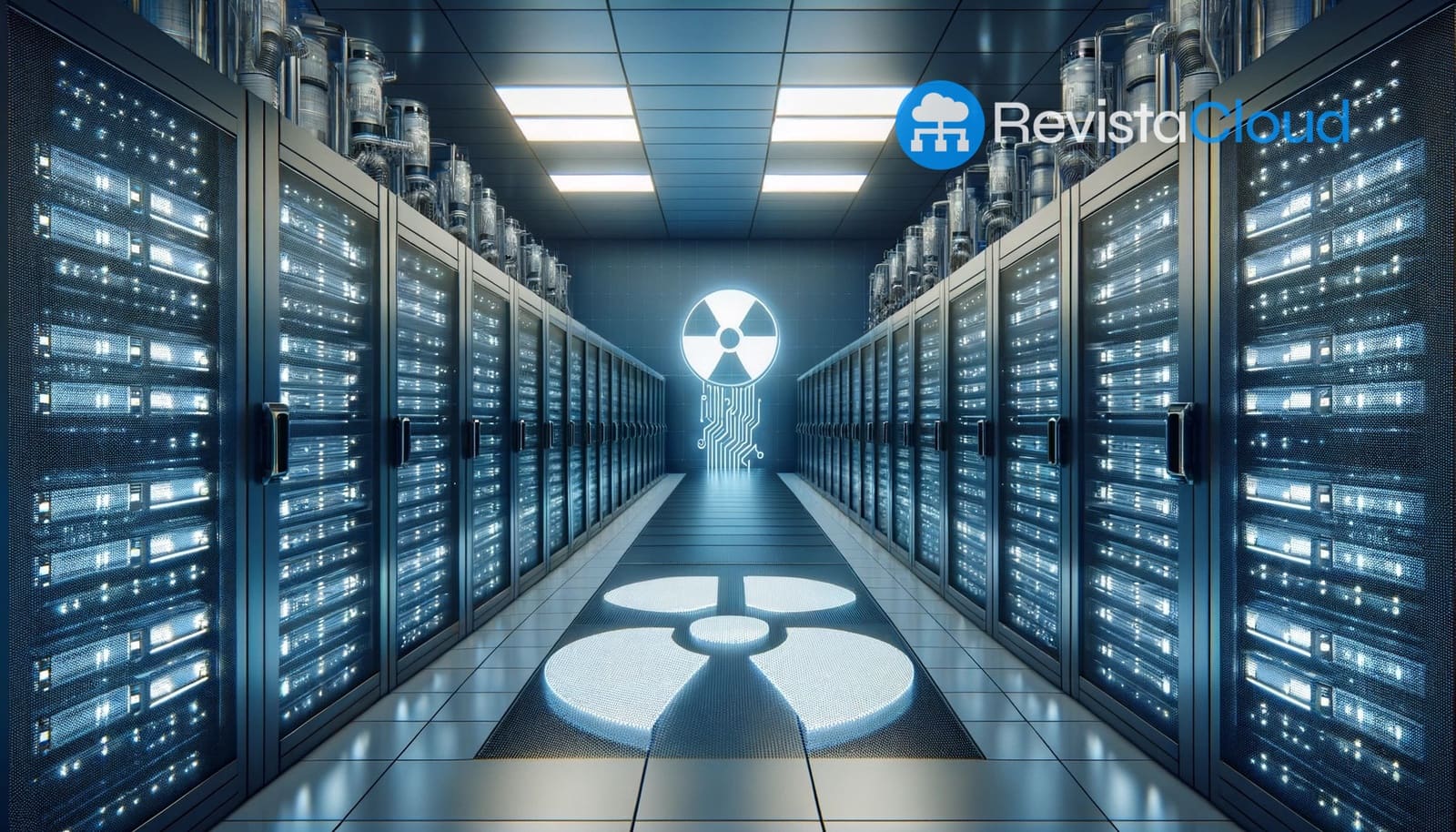The major tech companies are seeking energy alternatives that can meet the growing demand of their data centers, especially in the area of artificial intelligence (AI). In light of the need for a stable, clean energy source capable of supporting critical operations, several companies, such as Google, Microsoft, and Amazon, are reviving nuclear power as a viable option to power their massive data facilities.
AI Demand Drives Interest in Nuclear Energy
The intensive use of artificial intelligence has skyrocketed energy consumption in data centers in recent years. Training large-scale AI models requires an immense amount of computational power, significantly raising electricity costs at these infrastructures. Data centers, which already consume about 1% of global energy, are increasingly dependent on reliable and carbon-free sources to minimize their environmental impact and comply with increasingly stringent sustainability regulations.
Nuclear energy, being a low-carbon emission source capable of producing a large amount of constant electricity, is ideal for meeting the growing demands of data centers. Big Tech sees this option as both a clean and scalable solution that can respond to energy consumption spikes without compromising the environment.
Collaborative Projects and New Nuclear Technologies
In this transition, tech companies are exploring various modalities and collaborations in the nuclear sector. For example, Microsoft has signed collaboration agreements with nuclear energy companies to assess the feasibility of using small modular reactors (SMRs) at their data facilities. These reactors are more compact and safer than traditional nuclear plants, offering a suitable solution for energy deployments in specific data centers.
Google, for its part, has also expressed interest in SMRs and other cutting-edge nuclear advancements. The company believes these reactors are a sustainable alternative that would ensure energy supply even in the most remote data centers or those handling large-scale AI tasks. Modular reactors are particularly attractive because they can be built close to data centers, minimizing energy losses in transportation and improving operational efficiency.
Advantages and Challenges of Adopting Nuclear Energy
Nuclear energy offers multiple benefits for major tech companies seeking to operate in a cleaner and more efficient manner. Among its main advantages are:
- Stability and reliability: Unlike renewable sources like wind or solar, nuclear energy provides a constant flow of electricity, which is essential for data centers that need to operate 24 hours a day.
- Low carbon emissions: By not relying on fossil fuels, nuclear energy is an option that allows Big Tech to significantly reduce its carbon footprint.
- Potential for greater growth: With the accelerated evolution of artificial intelligence, the use of nuclear energy enables tech companies to scale their operations without fear of energy restrictions.
However, the adoption of this technology also presents challenges. Nuclear energy remains a controversial option due to concerns regarding safety and the handling of radioactive waste. Despite advancements in SMR technology and strict safety regulations, fears of potential accidents and the complexity of waste management remain significant barriers to its widespread implementation.
Towards a Future with Nuclear Energy in Data Centers
As data centers continue to multiply and AI applications become increasingly ubiquitous, it is likely that nuclear energy will move from being an innovative idea to a tangible reality in the infrastructure of Big Tech. Investments in nuclear energy, along with the development of technologies like small modular reactors, promise a future where tech giants can keep their sustainability commitments without sacrificing the expansion of their AI capabilities.
The renaissance of nuclear energy in the tech sector could ultimately redefine how data centers are managed and operated worldwide. This trend could position Big Tech as pioneers not only in the AI space but also in the use of clean and efficient energy sources, contributing to a more sustainable growth model for the digital industry and potentially for the entire global economy.

